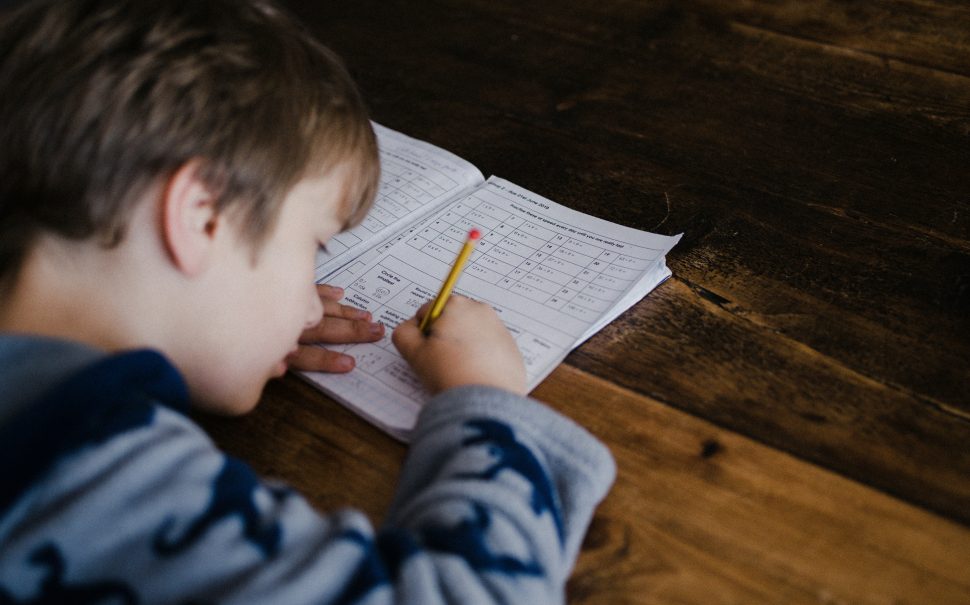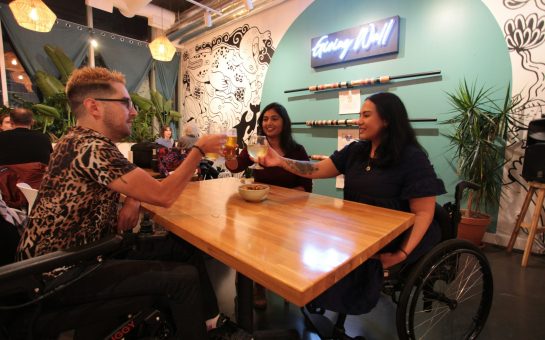New data from the Department for Education has revealed the extent of homeschooling around the country – including in Manchester. But what’s the experience really like?
Poppy Laker, 20, had a unique childhood.
Her parents had jobs that took them around the world, and they were seldom in the same place for long.
She soaked up cultural experiences from all manner of places – most of all in New Zealand, where the family spent several years, and in a couple of UK locations including Manchester.
Her education could easily have suffered because of so many changes of scenery – so she was homeschooled.
She said: “There were so many changes that I had to adapt to because I kept moving around, but being homeschooled allowed me to adapt to my parents’ work life and still be educated at the same time.”
Many children have followed in Poppy’s footsteps, in terms of their education: almost 700 children in Manchester had elective home education in Autumn of the 2023/24 academic year.
The data, shared by the Department for Education, lists how many compulsory school age children, which includes school years from year one to year 11, are in elective home education (EHE), otherwise known as homeschooling, in each local authority in England.
Which regional areas in England have the most homeschooling?
The North West takes fifth spot for the most homeschooling in England, with 10,130 children from autumn 2023/24, and was top spot among northern regions.
Yorkshire and The Humber is the area with the second most homeschooling area in the North, with 8,210 children – a massive difference of 1,920 children fewer than the North West.
The South East was the country’s homeschooling hotspot – with 17,040 children having home elective education in autumn 2023/24.
Poppy was homeschooled in various places around the world – including Manchester.
She said: “I was homeschooled throughout year one to year 11, because my parents travelled a lot for their jobs so it was difficult to always enrol me in different schools across the country and across the globe too.
“I was homeschooled both in Brighton with an online course, and this was the same in Manchester, as well as being homeschooled in New Zealand. I definitely enjoyed being homeschooled abroad because of the weather, but also because I knew a lot of other children were having the same type of education as me and it wasn’t seen as a rare thing. Because of this, there were a lot more resources in New Zealand.
“I think homeschooling can be excellent depending on the situation, especially as someone that grew up across two countries simultaneously, because it gave me the freedom to still study but also experience the cultures, see family and other things too.”
Which areas in the North West have the most homeschooling?
Manchester was home to 19.1% of Greater Manchester’s homeschooling in Autumn 2023/24.
Bolton and Wigan both had 11.9% of the total – 430 children apiece – followed by Rochdale with 370.
All three of these boroughs are towards the north of the region, whereas lower-ranking Tameside and Trafford are further south.
What is the most common reason for children being homeschooled in the North West?
Parents and guardians choose to homeschool their children for all kinds of reasons. Homeschooling can be very fulfilling for children and their families and can arguably often lead to children achieving better than expected academic outcomes and qualifications and it does not limit a young person from attending university and having a fulfilling career.
Even with all the positives towards homeschooling, a lot of reasons why children are homeschooled are usually due to negative factors affecting their education in traditional schooling.
A list of some but not all examples from the Department for Education include mental health problems, physical health issues, bullying, religious reasons and even risk of school exclusion.
From Autumn 2023/24, mental health struggles have been the biggest reasons as to why children between year one and year 11 are homeschooled in the North West, with 15.4% of the total.
According to the data, only 20 children were homeschooled because of permanent exclusions – the least common reason for the region.
Leona Mackenzie, 20, from Belle Vue in Manchester, added to the statistics with her own experience of starting homeschooling due to poor mental health.
She said: “I was homeschooled for just a few years from Year 7 to Year 9 because of mental health issues, due to a loss in the family.
“I was physically unable to go to school because my family and I did not believe that traditional education would help me with my episodes.
“It is interesting to see that it is the most common reason and it makes sense because I don’t think a lot of teachers are equipped with helping students when they start to suffer mentally at a serious level.”
Leona also mentioned that her friends in traditional state schools claimed staff there did not help children as much if they suffered with conditions like anxiety or depression.
She continued: “I can honestly say it has been an interesting experience for me because I started high school homeschooled – but then had to adjust to the face-to-face high school lifestyle at the peak in Year 9, which is arguably the year when teenagers start to act out and figure themselves out as well.
“So adapting and finding friends was difficult – especially whilst grieving.”
Poppy, who currently studies medicine at university, added that she saw a lot of health issues as a reason why children were homeschooled.
She said: “As someone that is also part of a medical field, I’ve seen young people who are unable to go to school due to medical issues such as autoimmune diseases or due to being hospitalised so much and it allows them not to fall behind.
“However, homeschooling can be very lonely: you’re unsure where to turn for support and you can lack structure and discipline. I believe homeschooling should be on an individual case-by-case basis!”
What are the negatives and positives to homeschooling?
Both interviewees would describe homeschooling as difficult in terms of discipline and maintaining self motivation.
Funding was a new topic that was highlighted when speaking about the struggles of homeschooling.
Leona said: “Funding to sit national exams has to come from yourself, and is something that not many people know. No support is offered by the government, meaning if you want to go to university you have to pay out to sit exams. There are a few charities that offer support for resources but none of them have enough financial support to sit all the multiple exams that we have to do, especially for GCSEs.”
She added that many homeschooled children are usually forced back into mainstream education to sit GCSEs or A levels for 10 GCSE subjects. Her personal total cost to sit her GCSE exams if she wanted to continue homeschooling was between £300 and £500.
Personal survey research
Eight people who are based in Manchester who were homeschooled, including Poppy and Leona, were asked to participate in a survey on homeschooling.
Out of the eight people that took part in the survey, two of the group did not believe that homeschooling should be allowed.
From all of the eight people that answered, and despite the financial difficulties mentioned with homeschooling in England when it comes to paying out of your own pocket for exams, 75% of people agreed that homeschooling should still be allowed.
From the same eight responses, bullying was the main reason as to why they were homeschooled, given by three respondents. Lifestyle, mental health and religious reasons were also given as reasons by two respondents each.
Despite it all, Poppy said: “Homeschooling is a completely different world when it comes to teaching and I think it’s such a great initiative when conventional style schooling does not fit a person well.”
Featured image by Annie Spratt on Unsplash




